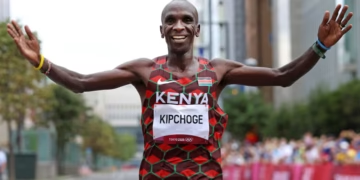After winning the 2025 Women’s World Cup, the 19-year-old becomes a fresh face for brands seeking authenticity beyond cricket
When Divya Deshmukh clinched the FIDE Women’s World Cup title in Batumi this week, she didn’t just make history — she opened a new lane in India’s sports-branding highway. At just 19, she became the first Indian woman to win the prestigious tournament, boosting chess’s visibility and sparking conversations in a market long dominated by cricketing faces and Bollywood stars.
Cricket Still Dominates Celebrity Endorsements
According to TAM AdEx’s 2024 rankings, six of India’s ten most visible celebrities were men, mostly actors. The only sportsperson on the list was MS Dhoni. The growing ₹1,224 crore athlete endorsement market — up 32% from 2023 — remains largely skewed toward cricket, leaving little room for new-age champions from other sports.
An Unlikely Disruptor with Mass Appeal
Deshmukh’s win, however, may shift the equation. Marketers have noticed her relatable charm, quiet confidence, and youthful personality — a combination that breaks the usual chess-player stereotype. Her apologetic nods to chess clocks and playful gestures have made her a darling of Gen Z, not just a Grandmaster.
“She’s aspirational without being flashy,” says strategist Ambika Sharma. “That opens up a very different kind of brand conversation.”
Brands Looking Beyond Mass Reach
Experts say brand strategies are evolving. “Mass reach is no longer the only goal. Brands want real stories, not just popular ones,” says Shubham Chawla of Youthbeat. Deshmukh fits that shift. From edtech to youth fashion, personal care to digital finance, her appeal is versatile and grounded.
Until now, her deals were mostly regional. But marketing executives estimate her brand value has already reached ₹25–40 lakh per endorsement — a number expected to rise as her media presence grows.
Rising with India’s New Chess Wave
Deshmukh’s rise comes as Indian chess undergoes a commercial transformation. With over 9 million monthly Indian users on Chess.com and improved viewership, the sport is getting younger and more digital.
She joins a new era shaped by stars like Gukesh, Praggnanandhaa, and Arjun Erigaisi — players who’ve landed million-dollar deals and multi-year sponsorships. Erigaisi, for instance, became one of India’s first chess millionaires through endorsements.
More Than Just a Moment
What Deshmukh achieved — as the 15th seed defeating higher-ranked players including Koneru Humpy in the final — is likely to resonate beyond the current headlines. Her win also spotlighted the growing strength of Indian women in chess, even as China continues to dominate the top rungs.
However, as veteran observers point out, India’s bench strength in women’s chess still needs development. Deshmukh’s story could spark that interest among young girls and their parents — but long-term plans and support from federations are critical.
The Road Ahead
Chess is no longer a niche. With greater media attention, institutional backing, and platforms making the game more visible, Deshmukh may just be the face that changes how India values its women athletes — not just on the board, but on the billboards too.




















Discussion about this post